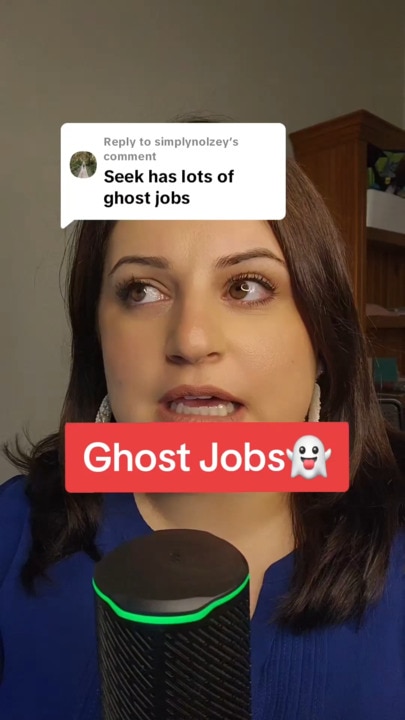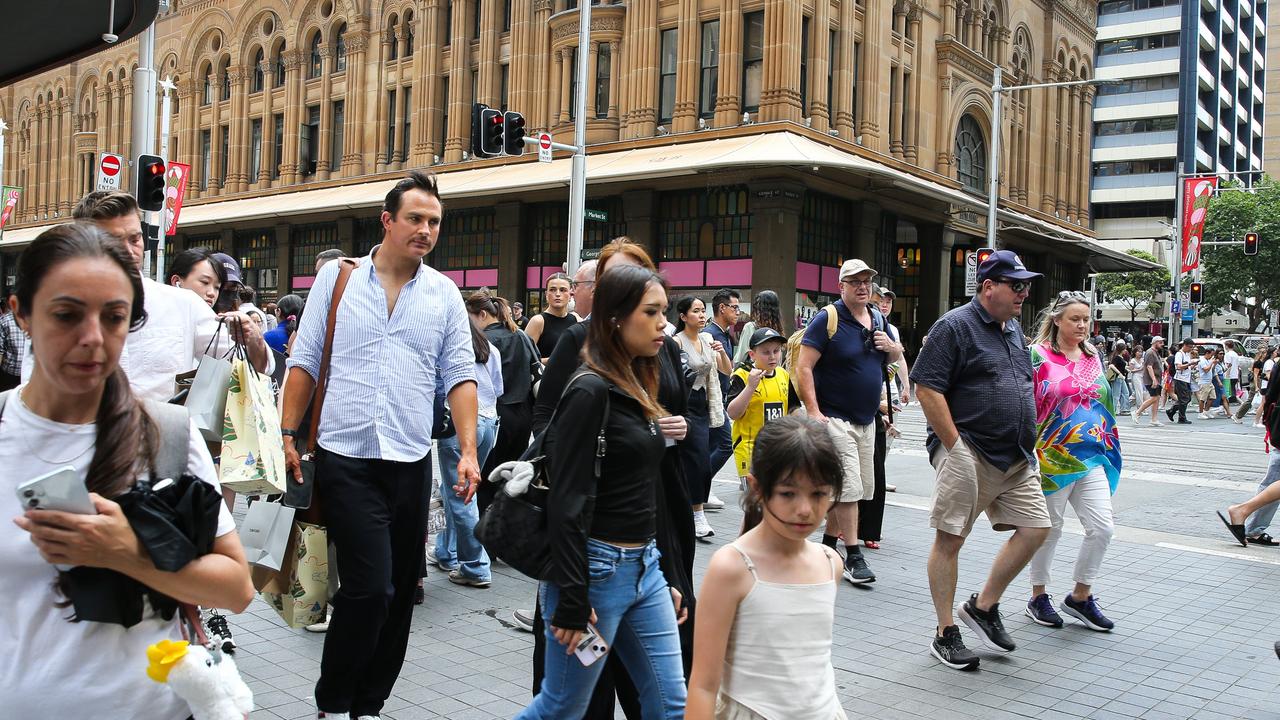‘Making excuses’: Job seekers hit with brutal truth about ‘ghost jobs’ in Australia
A recruiter has given a brutal assessment on the rising concern around “ghost jobs”, saying too many Aussie job seekers are using the term as an “excuse”.

At Work
Don't miss out on the headlines from At Work. Followed categories will be added to My News.
Australian job seekers who have been blaming their lack of success in the job market on “ghost jobs” have been given a brutal wake up call.
If you are not familiar with the term “ghost job”, it essentially refers to companies posting advertisements for positions that appear to be genuine but they actually have no intention of filling.
There may be various reasons for posting a ghost job, with news.com.au previously being told that it is something that has been happening across the Australian job market for decades.
However, a recruitment expert believes Aussies are now using these as an “excuse” for their job search failures.
Tammie Christofis Ballis, a specialist recruiter and career coach at Realistic Careers, pointed out that it is illegal to post ghost jobs and businesses can “get in big trouble”.
“So, if you think that people are putting ghost jobs on SEEK, I am sorry, but you are mistaken,” she said in a recent TikTok video.
“I know people like to make excuses as to why people are unsuccessful with their job search, and saying ghost jobs is one of them.”

MORE: 8 things you didn’t know you could be fired for
Under the Australian Consumer Law, penalties for sharing misleading job and business opportunity advertisements can range up to $1.1 million for the most serious breaches.
It’s not uncommon to be scrolling on social media and see someone complaining about applying for multiple jobs and hearing nothing back.
Speaking to news.com.au, Ms Ballis said, more often than not, this is due to poor recruitment practices, not because the jobs they are applying for are fake roles.
She said people in talent acquisition roles should at the very least be sending an email to unsuccessful applicants. Unfortunately, a lot of times this doesn’t happen.
“But, because people are not hearing back, they’re assuming that it’s a ghost job or a job that doesn’t exist, and then they make excuses,” she said.
“Making these excuses and having a whinge and a moan online makes them feel better as to why they’re not getting any call backs rather than seeking help and finding out, well, is there something wrong with my resume? Am I not strategically applying to jobs? Am I reading the job ad properly? Do I meet 80 per cent of the requirements? They’re making excuses.”
MORE: The highest paying jobs in Australia without a degree
Posting job ads can also be an expensive endeavour for businesses, which Ms Ballis believes would be enough on its own to deter many businesses from posting ghost jobs.
For example, posting a one-off listing on job search platform SEEK costs a minimum of $400 per ad. Other sites like Indeed have a daily rate that needs to be paid.
Ms Ballis said it doesn’t make sense for businesses to be wasting money posting ads for fake jobs.
She did note there are cases in which a company may leave an ad up for a job that has already been filled in order to build a talent pool from the applicants, but said this is not considered a “ghost job”.
The recruitment specialist said ghost jobs do exist in Australia, but they are most commonly used for scam purposes and to trick people into handing over their personal details.
“The ghost job term, what people think it is, it is not as prevalent,” Ms Ballis said.
“Businesses can advertise, things change and by the time that the job ad has maybe been up for a week, then the job isn’t available anymore. That happens too. It doesn’t mean that it’s a ghost job.”
While ghost jobs may not be as rife as Australian jobseekers believe, Sue Parker, career and communications strategist at DARE Group Australia, has definitely seen evidence of these types of roles throughout her career.
Speaking to news.com.au last year, Ms Parker, who previously owned her own recruitment agency said it is a tactic that companies use to either make themselves look better or achieve certain business agendas like sneakily creating talent pools.

“Fake job ads can also be posted to obtain market intelligence and information on competitors during the interview process,” she said.
“The recruitment ecosystem is a pendulum. At times the pendulum swings towards a candidate market, others towards a company/job market. Rarely is it in sync. So organisations and recruiters in quieter times can often use fake ads to bump up their activity.”
There are a few different ways to identify a ghost job, with Ms Parker saying vagueness in the copy of the advertisement is a “key giveaway”.
She said if a job has been advertised for more than a month then there is a “high chance” it is a ghost job.
According to Ms Parker, there is never a situation where a recruiter or a company posting a fake job ad is justified.
“Ghost and fake job ads is a decision pure and simple to deceive and manipulate. It’s unethical and a form of candidate abuse,” she said.
“It causes reputation damage of brands and organisations, financial and time wastage for candidates.”
More Coverage
Originally published as ‘Making excuses’: Job seekers hit with brutal truth about ‘ghost jobs’ in Australia




